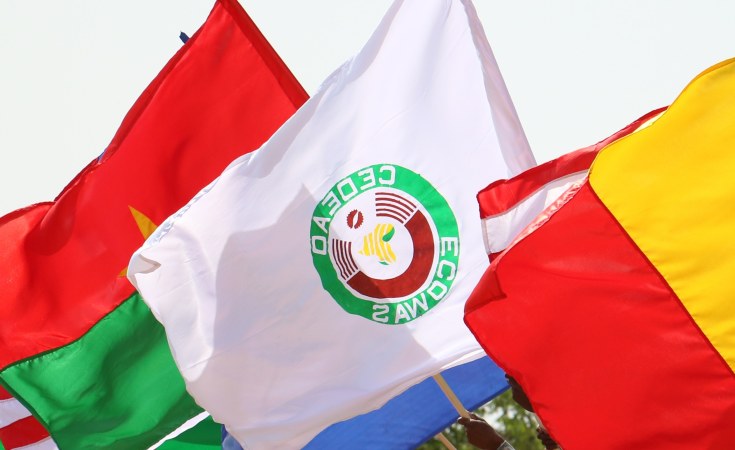With a results-based timeline for holding the military government accountable, the transition agreement could deliver reform and stability.
Military officers overthrew the regime of Alpha Condé on 5 September 2021, less than a year after the former Guinean president started a controversial third term.
In response, the Economic Community of West African States (ECOWAS) and African Union (AU) suspended the country from their decision-making organs and demanded a 'reasonable' timetable for the transition. Over a year later, Guinean authorities and ECOWAS agreed on a 24-month transition period starting in December 2022.
Just two weeks after the coup, on 16 September 2021, ECOWAS had proposed a six-month transition timetable - a deadline that most Guineans deemed unrealistic. The major problem was that the proposal focused on only one element of the transition process - the holding of elections.
By contrast, the new approach that led to the October 2022 agreement provided an action plan and implementation timetable allowing certain actions to be carried out simultaneously. This approach facilitated the adoption of a results-based transition timeline and agenda that can easily be monitored.
Some political actors believe the transition should focus on a return to constitutional order
The transition process covers 10 elements that authorities consider necessary for in-depth sociopolitical state reform. These include conducting two types of population census, preparing the electoral registrar, adopting a new constitution, establishing an election management body, and organising elections (referendum, local, legislative and presidential).
However some political actors argue that the transition should focus only on actions necessary for a return to constitutional order. They fear some elements of the agenda could prolong the transitional period.
To reassure sceptics, transitional President Colonel Mamady Doumbouya has pledged to respect the timetable. On 9 February, he issued a presidential decree establishing a monitoring and evaluation committee under the authority of Prime Minister Bernard Gomou. But the committee seems to have been set up unilaterally without consulting ECOWAS - contrary to the spirit of the October 2022 agreement.
ECOWAS' representative on the committee is treated as a mere observer, like other international actors present in Conakry, rather than a member. Yet having ECOWAS represented as a fully-fledged committee member - if not a co-convener - would not only respect the October 2022 agreement, but build trust with Guinea's political actors.
Transitional President Colonel Mamady Doumbouya has pledged to respect the timetable
Three important elements of the transition agenda deserve highlighting. One is the new constitution, which should define the choice of institutions, accountability mechanisms and legal safeguards to protect them. In the controversial 2020 constitution adopted by Condé, the process for choosing Constitutional Court members gave the president disproportionate powers, making this vital judicial body vulnerable to political interference.
Presidential term limits and safeguards will also be decided in the constitution, as well as Parliament's powers and relationship with the executive. Yet constitutions provide legal guidance and cannot fully delineate political leaders' behaviour. What ensures good governance is leaders' political will and attitudes.
Guinea has suffered from poor governance under corrupt and power-hungry politicians. The political landscape needs rigorous public scrutiny to ensure post-transition leaders act in the national interest and respect the ethics of sound and accountable governance.
The second significant issue on the transition agenda is the electoral management body. Since being set up in the mid-2000s, successive electoral commissions have comprised political party members with only a few representatives from civil society. This meant that participants' political rivalries often affected their objectivity. Many observers have called for a non-partisan commission whose members are chosen for their technical expertise and impartiality, not any partisan affiliation.
The military government has already provided budget lines for some elements in the transition agenda
The voters' roll is the third important element. Its quality and inclusivity will be essential in deciding the acceptability of future election results.
The context in which the action plan is implemented also matters. No effort can be spared in ensuring the transition process is as widely inclusive as possible. Financial and technical resources are also required, and it is encouraging that the transitional government has already provided budget lines for some of the 10 elements. But more funding will be needed.
Some bilateral and multilateral partners in the country have indicated to ISS Today that they are willing to contribute. But they require specific activities from the action plan, with clear budget lines. Transitional authorities need to indicate how much they can mobilise and what gaps must be filled. ECOWAS and the AU should also contribute funds to ensure regional ownership of transition support.
To avoid tensions that could jeopardise the process, dialogue with all stakeholders is needed on important aspects of the transition agenda. Due process in legal proceedings must also be followed. The transition president, prime minister, religious leaders and the ECOWAS mediator can all help to prevent and manage conflict. Politicians must also put national interest above partisan and personal considerations.
Issaka K Souaré, Regional Adviser, ISS Office for West Africa, the Sahel and the Lake Chad Basin


